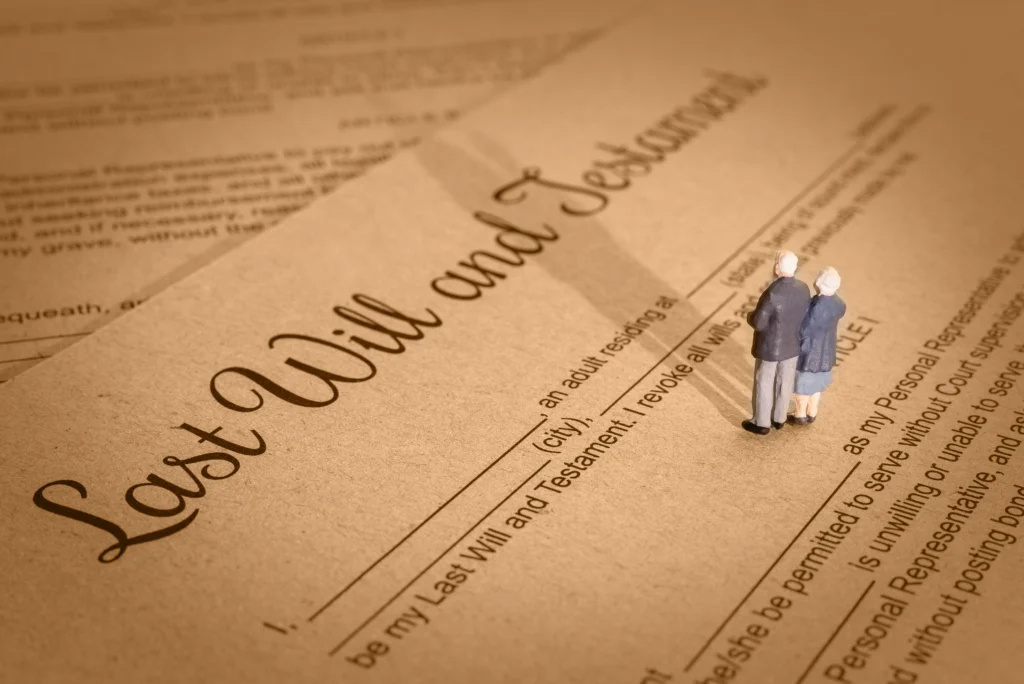Probate in New York
Everything You Need to Know

By Daniel Khaldarov
Probate is the legal process that occurs after someone passes away, ensuring their assets are properly distributed to beneficiaries and any outstanding debts are settled. In New York, this is handled by the Surrogate’s Court of the county that you are in. If the deceased left a will, the Surrogate’s Court verifies its validity and appoints an executor to manage the estate. In cases where there is no will, state law governs how assets are distributed.
Though probate provides a formal process for settling an estate, it can sometimes lead to delays or complications, especially when disputes arise. That’s why many people look for ways to avoid probate through strategic estate planning.
What Happens During Probate in New York?
When an estate enters probate, several key steps are involved:
- Validating the Will: If there’s a will, the court reviews it to ensure it’s legally binding and appoints an executor.
- Inventorying Assets: The executor identifies and gathers all assets, from real estate to personal property, ensuring everything is properly accounted for.
- Paying Debts and Taxes: Any outstanding debts and taxes associated with the estate are paid out before distributing assets to beneficiaries.
- Distributing Assets: Once debts are cleared, the remaining assets are distributed to the beneficiaries according to the terms of the will (or state law if no will exists).
Why People Seek to Avoid Probate in New York
While probate is an orderly way to manage an estate, there are a few reasons why individuals may want to avoid it:
- Time-Consuming: Probate can sometimes take several months or even longer to complete, particularly if the estate is large or contested. This delay can hold up the distribution of assets to beneficiaries.
- Public Process: Probate proceedings are part of the public record, meaning that anyone can access details about the estate, which may raise privacy concerns for some families.
- Cost: Unfortunately, the burden of going through a court process can be costly, especially if disputes arise. This can consume a significant portion of the estate, reducing what beneficiaries ultimately receive.
How to Avoid Probate in New York
Fortunately, there are several estate planning tools that allow you to avoid probate altogether, ensuring a smoother transition of assets to your heirs. Some of these strategies include:
Revocable Living Trust: By placing your assets in a trust, you can bypass probate since the trust holds the legal title to your assets. Upon your death, your chosen trustee distributes assets to your beneficiaries without court involvement. Trusts also provide flexibility and protection in case of incapacity.
Joint Ownership: Property that is jointly owned with rights of survivorship (such as a joint bank account or a home) passes directly to the surviving owner without going through probate.
Beneficiary Designations: Many financial accounts, including life insurance policies, retirement accounts, and payable-on-death (POD) bank accounts, allow you to name beneficiaries. These assets pass directly to the named individuals upon your death, avoiding probate.
Gifting Assets: You can transfer assets during your lifetime as gifts to avoid them becoming part of your estate when you pass away. However, there are annual gift tax limits to consider.
Is Probate Ever Necessary?
While avoiding probate is often desirable, it’s not always possible or necessary to avoid it entirely. Small estates—those that don’t meet certain financial thresholds—may qualify for a simplified probate process, which is quicker and less expensive. In New York, that threshold is less than $50,000 in personal property. Additionally, if there are unresolved debts, taxes, or disputes over the estate, probate can provide a structured process to resolve these issues fairly.
Contact the Law Office of Daniel Khaldarov
Probate offers a clear and legal method of settling an estate, but it can sometimes involve delays or privacy concerns. By taking steps like setting up a living trust, designating beneficiaries, or holding property jointly, you can help your loved ones avoid the probate process altogether.
Whether you want to explore these options or or you need an attorney who will help you navigate the probate process for a deceased loved on with ease, call the Law Office of Daniel Khaldarov to learn how I can assist you.




